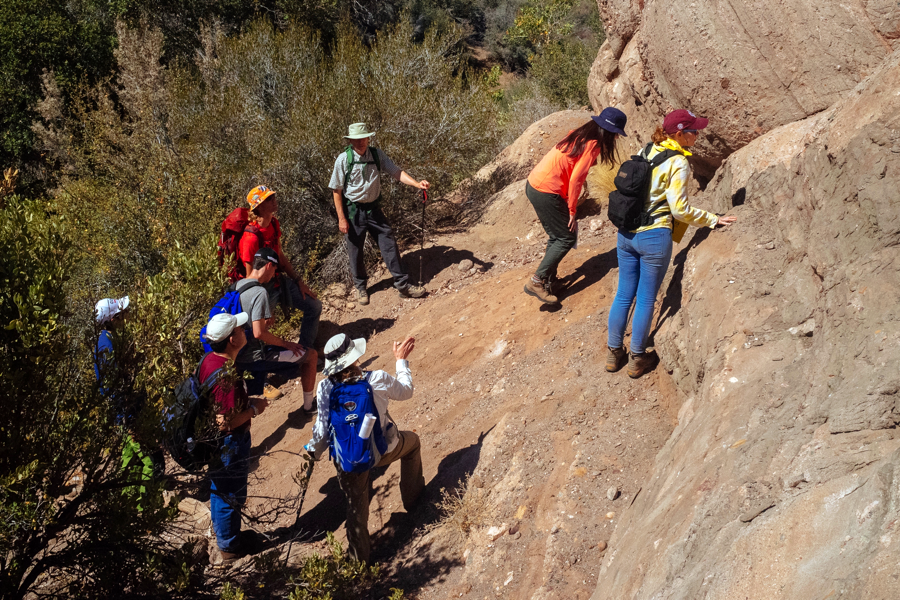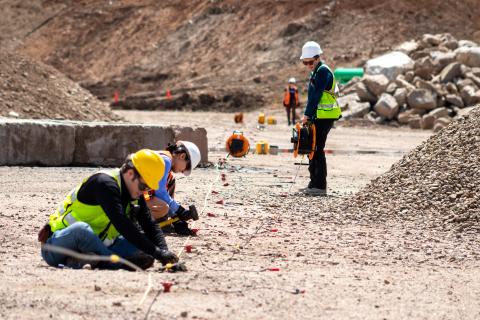All Categories
Featured
Table of Contents
Job Profiles : Geophysicist Physics in Brookdale Oz 2022
This work is significantly contracted out, so consultancies offer another source of employment. Consultancy firms differ in size, from extremely little companies to large multinationals. Some consultancies are quite specialised in using specific geophysical strategies or operating in specific places, while others use a more diverse variety of services to their customers.
The extraction of gas from landfill sites is another area of employment and this might grow in the future. Expedition business might carry out work for building companies, water business, mining companies and ecological agencies, so geophysicists may be used in any of these settings. Other companies include: geological surveysgovernment bodies and agenciesuniversities and research study institutes.


Jobs might be listed in the oil and gas sector press. Recruitment is affected by oil price fluctuations and the level of competitors for positions varies depending upon this. Careers Days, which cover the complete variety of geoscience careers and are generally gone to by a variety of essential industry employers, are run by The Geological Society.
Importance Of Geophysical Surveys — Methods And Uses in Dalkeith Western Australia 2023
Some of the large oil and gas business provide a complete two-year structured training programme across the breadth of geophysics, including the opportunity to experience work in numerous groups before specialising in one area. Your training might include deal with: existing wellsmagnetic and gravitational potential field information analysisresearchrock analysis. It's more typical for your initial training to be provided on the task.

There might be a probationary period during which you work along with a skilled colleague. Competency-based appraisals occur regularly in most companies. In smaller companies, and for academic posts, there is unlikely to be any formal training - you'll be anticipated to start work straightaway and pick up abilities as you go along.
If you work for a smaller sized company, you might discover that you need to take responsibility for arranging and moneying your own advancement and training. If you have a geology degree, subscription of The Geological Society can be useful for networking and for maintaining to date with the market.
What Does A Geophysicist Do: Duties And Responsibilities in Ballajura Australia 2022
You might also find it helpful to join the PESGB (The Petroleum Exploration Society of Great Britain, which has a geophysics special interest group. After a probationary period, and when you've gained some experience, you could advance to senior geophysicist, then team leader and after that into a senior role in management.
The ease of motion between functions depends upon the company structure. Research study at Masters or Ph, D level in a subject associated to geophysics or geosciences might help with your profession advancement and progression. The employment market within the oil and gas industry is very depending on cost and this might affect your chances for career progression.
Nevertheless, not all tasks are reliant on the oil and gas industries. For skilled geophysicists, freelance consultancy provides an excellent route for profession development. You can likewise specialise in a particular location of geophysics. As a geophysicist, you're likely to have numerous tasks throughout your working life. Worldwide movement is important for handling peaks and troughs in different nations at various times.
Hydrographic And Geophysical Surveys in Murdoch Australia 2023
From geophysics, it's possible to concentrate on seismology (finishing more training to become a seismic interpreter) or to move into associated areas such as engineering geology or risk forecast.
Deciding what to study in college is a hard option. Even if you know that your field of interest lies in science, what program of research study is right for you?
The very first action to attaining your goal of ending up being a geophysicist is earning a degree. Even for entry-level positions in the field of geoscience, you'll require a bachelor's degree (a geophysicist college degree) from an accredited college or university. Geophysicists need to be able to: evaluate rocks, photos, and other pieces of information perform research study both in the field and in labs develop maps and charts of their findings write reports To achieve all this, students require a specialized education for geophysicist careers.
As stated above, you'll need a bachelor's degree in geoscience or a related discipline, such as a physical science or a life sciences, to land an entry-level task. However students can likewise prepare by majoring in subjects like: Biology Chemistry Computer science Engineering Mathematics Physics The above geophysicist majors offer a more generalized technique to a single scientific discipline, however a lot of programs need students to take several geology course.
Table of Contents
Latest Posts
Geophysical Survey In Archaeology in Samson WA 2023
Geology Careers: Degree Requirements, Cost & Salary in Subiaco Western Australia 2022
Geophysical Surveys: Definition & Methods in Armadale Western Australia 2022
More
Latest Posts
Geophysical Survey In Archaeology in Samson WA 2023
Geology Careers: Degree Requirements, Cost & Salary in Subiaco Western Australia 2022
Geophysical Surveys: Definition & Methods in Armadale Western Australia 2022